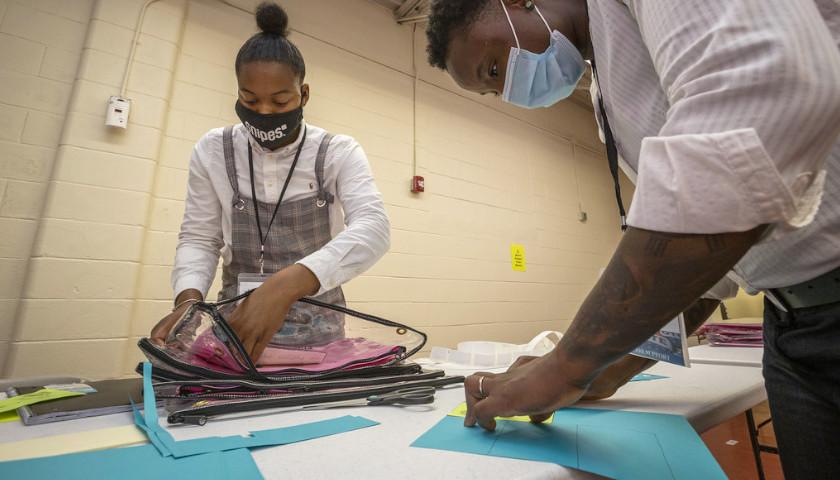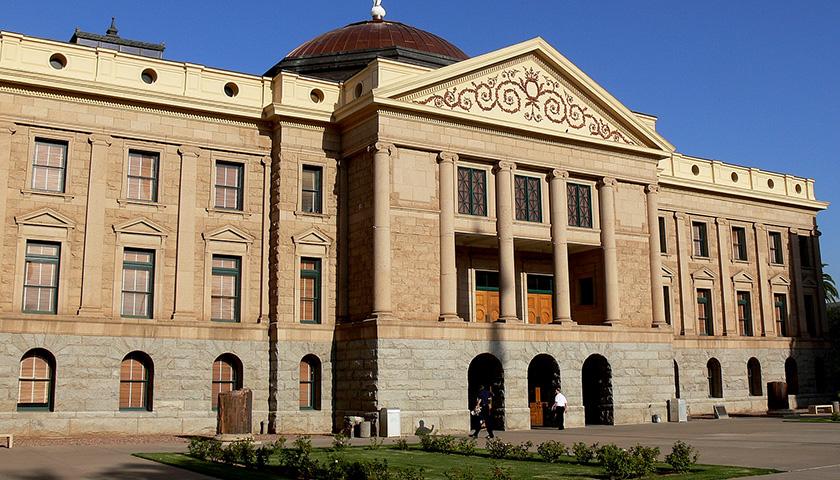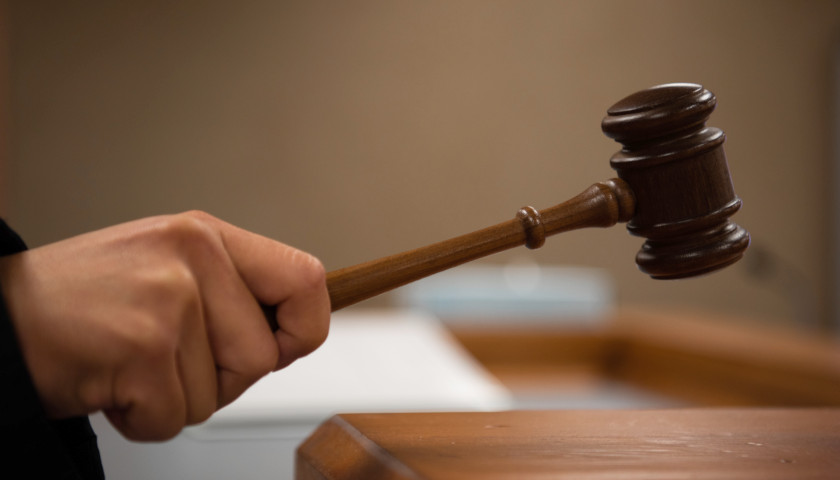Kari Lake and Abe Hamadeh continue to contest their election losses in the 2022 election for governor and attorney general respectively, producing ongoing new evidence of irregularities and possible wrongdoing in the election. Much of the evidence has taken months to come out, including evidence related to the problematic 2020 presidential election, due to stonewalling by Maricopa County and other government agencies at turning it over. Maricopa County mostly ignored four repeat requests for data and equipment regarding the 2020 election from Jennifer Wright, the Election Integrity Unit civil attorney for the attorney general’s office, who resigned at the end of 2022 and now represents Hamadeh in his election contest.
Much of the evidence appears to show violations of the state’s Election Procedures Manual, which are Class 2 misdemeanors. While not all of the alleged violations can be described as fraud, many of them can be characterized as alleged criminal activity. Here is a look back at some of the most serious complaints regarding alleged wrongdoing during Arizona’s 2020 and 2022 elections.
Voter signatures on ballot envelopes not matching
One of the biggest allegations in both the 2020 and 2022 elections was that voters’ signatures on their mail-in ballot envelopes did not match the signatures on record, often due to different handwriting or a completely different name. In some cases, the signature was missing altogether. In other cases, the signatures were similar to those of other voters — indicating that one person was likely fraudulently signing multiple affidavits.
State Senator Sonny Borrelli (R-Lake Havasu) put on a presentation last November regarding this problem. His team of researchers found 17,822 signature mismatches — more than the margin that Donald Trump lost to Joe Biden in Arizona’s presidential election, 10,457 votes. Once a ballot was accepted with the mismatched signature, the unmatching one was often allowed to replace the original signature on file. Borrelli’s team found that these mistakes with the signatures weren’t cured as required by state law by 7 p.m. on election night.
We the People AZ (WPAA) reviewed 12.12 percent of the signatures on ballot envelopes in the Maricopa County 2020 election and found that 18,022 were mismatches, evidence that was included in Lake’s lawsuit. Lake lost the election by only 17,117 votes. This translated to 156,000 likely mismatches countywide, yet the county only rejected 587 ballots for mismatched signatures. WPAA discovered that thousands of those voters voted again in the 2022 election.
Lake provided affidavits in her election challenge from Maricopa County signature reviewers who stated that they rejected signatures as mismatching up to 40 percent of the time, but when they would return to work the next day, the signatures wouldn’t be returned by their supervisors to cure; instead, they said they believed the supervisors were approving them.
In its final canvass report for the 2022 primary election, Maricopa County said it rejected 14 times more signatures than it did in the 2020 general election. This shows that far more relaxed standards were used to verify signatures in the 2020 general election.
Voter signatures on ballot envelopes were verified in 4.6 seconds and less
In then-Attorney General Mark Bnovich’s interim audit report to the Arizona Senate regarding his investigation of the 2020 election, he stated that election workers only had an average of 4.6 seconds for each signature verification, which he called “a serious flaw.”
Much of Lake’s second election trial focused on the small amount of time taken to verify signatures. Her expert, Erich Speckin of Speckin Forensics, found that 274,000 ballot envelope signatures were compared for validity in only 3 seconds. A video went viral showing “User 134,” a Level 1 Maricopa County signature reviewer caught on video approving signature matches in less than one second each.
Lack of chain of custody for ballots, a Class 2 misdemeanor
Brnovich’s interim audit report found that 100,000 to 200,000 ballots from the 2020 election lacked a chain of custody. “Maricopa County failed to follow critical procedures when transporting early ballots from drop locations to the election headquarters,” his report stated.
Lake told the court in her election contest that over 298,942 early ballots delivered to Runbeck Election Systems did not have the required record. A Runbeck employee and other observers provided affidavits regarding witnessing this. The Runbeck whistleblower stated that there was no chain of custody procedures followed on election night.
The election integrity organization Verity Vote issued a report in July analyzing chain-of-custody violations in the 2022 election, which found a discrepancy of over 84,000 ballots reported received at Runbeck versus the number of ballots scanned at Runbeck. Verity Vote listed numerous ways Maricopa County failed to adhere to the state’s Election Procedures Manual (EPM).
Discrepancy of thousands of votes between those who cast votes vs. the number of ballots counted
A report from the America First Policy Institute (AFPI) found that there may be an 8,241-vote discrepancy between those who cast votes in Maricopa County’s 2022 election and the number of ballots that were counted.
Votes not counted
One of the key issues in Hamadeh’s election contest was the discovery after his trial that “undervotes” in Pinal County were not counted. After they were discovered and counted, Kris Mayes’ lead in the race shrunk to only 280 votes. Hamadeh has accused then-Secretary of State Katie Hobbs of withholding information about the undervotes until after his trial. After hearing about the undervotes, Hamadeh’s team investigated and discovered that as many as 76,339 votes may not have been counted throughout the state.
Hamadeh’s team also found that voters who owned property in other counties outside their home county mysteriously had their voter registration changed to the other county shortly before the 2022 election. This forced them to vote a provisional ballot. Even though many of them had solid voting records previously, they discovered later that their votes were never counted. Wright said at least 1,200 of them across roughly half of the state’s counties were “erroneously rejected.”
WPAZ’s investigation found that 10,000 votes probably were not counted in the 2022 election. There were 15 batches of ballots, around 10,000 total that were logged but did not make it into Maricopa County’s final CVR, the group told the Arizona Senate’s Election Committee.
A report from Verity Vote stated that 38,000 early ballots in Maricopa County were unaccounted for. The group examined comments made by Maricopa County officials and the officially certified numbers, and found that the numbers did not match up; the officials’ repeated claims that there were 290,000 drop box ballots delivered on Election Day did not match the certified numbers, which only allowed for 253,000 of those ballots to be delivered on Election Day.
Thousands of disenfranchised Republican voters
Data analyst Richard Baris of Big Data Poll submitted a report with Lake’s lawsuit about his survey of voters regarding whether they experienced problems on Election Day. He estimated that between 15,603 and 29,257 Republicans were disenfranchised who would have voted for Lake. The voting tabulator problem in Maricopa County on Election Day affected areas averaging well over 300 percent more Republicans than Democrats. Due to the extremely high numbers of Republicans voting in person on Election Day, those votes were expected to fall 70 percent to Lake, 30 percent to Hobbs.
WPAZ’s Shelby Busch told the Arizona Senate’s Election Committee that 64 percent of the 4,021 people waiting in lines of 85 or more people at the time the polls closed at 7 p.m. last fall never got to vote. She discovered this discrepancy by speaking with the marshalls at the polling locations, who remembered the numbers in line at closing, and comparing it to information from the Arizona Attorney General’s investigation and the poll books.
Government officials’ refusal to turn over records
Maricopa County repeatedly refused to provide documents and equipment for examination by the attorney general’s office and the Arizona Senate. Wright sent the county four requests that were mostly ignored; the county partially responded once, then never answered her again. During a radio interview, she said, “[Maricopa County] hid and obscured documents.”
WPAZ submitted multiple public records requests to Maricopa County that were denied or heavily redacted, such as the Cast Vote Record. Election researcher Melissa Wright had her public records requests blown off by the county many times.
Prosecutions for ballot harvesting
Brnovich prosecuted two Democratic operatives in Yuma County for ballot harvesting in the 2020 election, a Class 6 felony. Guillermina Fuentes, former Democratic mayor of San Luis, was accused of actively canvassing San Luis neighborhoods collecting ballots, even paying for them. She admitted to investigators that she may have also filled out the ballots for voters. Gary Snyder, an activist in Yuma County, has followed the ballot harvesting operations there for years and said it was extensive.
In several recent elections around the country, new elections were ordered for far smaller law violations. Elections have been overturned for reasons such as discovering four voters were ineligible, hundreds of mail-in ballots discovered in a mailbox, and a poll worker informing voters that one of the candidates was deceased. In another case, a judge ordered a new election over one “irregularity.” In another, and finally, a judge ordered a new election where it was found that at least two candidates helped bring people to the town’s early voting location who were ineligible to vote.
Mark Finchem also challenged the 120,000 vote loss of his race for secretary of state. A Rasmussen Reports exit poll found that 8 percent more voters voted for Lake over Hobbs, 6 percent said they voted for Hamadeh over Mayes, and 3 percent voted for Finchem over Fontes.
– – –
Rachel Alexander is a reporter at The Arizona Sun Times and The Star News Network. Follow Rachel on Twitter. Email tips to [email protected].





